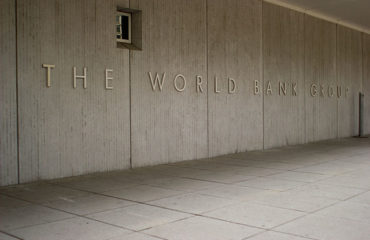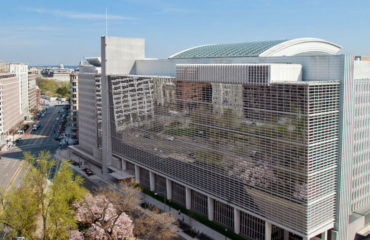
Many people know that the IFC is the private sector arm of the World Bank Group and that the institution’s mission is aimed at the advance of economic development by means of encouraging the growth of private enterprise in developing countries. But how does the IFC achieve this?
In this article, we will show what is the IFC 3.0 Strategy, how it came to be and its importance in today’s economic state of affairs – crucial information if you ever want to start a career at the IFC!
Knowing this can be the difference between success and failure when writing your essay for the IFC Track of the WBG YPP. Remember that the IFC YPP has been part of the WBG YPP as a whole since 2020.
Did you know that IFC candidates will have to face an additional stage in the selection process? They’ll face the timed computer-based Financial Tests. To help you in this decisive stage, we have created study materials to get you completely ready to face the computer-based Financial Tests.
Our preparation and study materials were made and revised by experts specialized in the IFC Track of the World Bank Group YPP selection process. With our preparation, you will also be ready for the Cognitive Assessment Test, which is taken together with the Computer-based Financial Tests. Check our IFC Test packages now and get ahead of the competition:
GET READY FOR THE IFC FINANCIAL TESTS NOW!
THE HISTORY BEHIND THE IFC 3.0 STRATEGY
The current IFC corporate strategy, known as the IFC 3.0 strategy, has been in place in the international financial institution since December 2016. This approach was endorsed by the organization’s board in the context of building on the strengths of the previous approaches, IFC 1.0 and 2.0, while shifting IFC’s business model to focus on creating markets.
The previous strategies focused on looking for the best opportunities to serve IFC’s client countries by providing advice and financing to the mobilization of private sector solutions to their development issues. The IFC 3.0 strategy does not remove that element: it adds instead a new layer of proactive action by the institution.
That layer consists of the creation of markets, by means of unlocking new, innovative opportunities for the communities in which the IFC works, while also being accountable to the people that are affected by the funded projects. The IFC 3.0 strategy has become even more relevant as the IFC has been supporting its member countries in coping with the shock of the COVID-19 pandemic.
It is also crucial to understand that this strategy was particularly conceived to be the most effective in IDA countries and Fragile and Conflict-affected Situations (FCS). These are released annually in a list by the World Bank Group, which is made with the aim of informing strategic and operational decision-making within the WBG.
THE PLACE OF THE CASCADE APPROACH WITHIN IFC 3.0 STRATEGY
The cascade approach is a World Bank Group decision-making sequence that establishes the priority of private sector solutions wherever possible in order to optimize the use of public sector resources. This is done so that public resources are focused on challenges that the private sector is not able to address. It is, therefore, at the core of the IFC 3.0 strategy, being its main pillar.
The cascade framework requires WBG teams to first try and address policy and regulatory hurdles to private sector investments before using public sector resources to fund investments. It is also serving as an important tool in deploying World Bank Group support in response to the COVID-19 pandemic, given the need to build a more resilient world.
All financial sector teams of the institutions of the WBG have agreed on a protocol that prioritizes the use of credit lines and guarantees to private financial intermediaries before resorting to the public sector. This adds efficiencies and frees up scarce public sector resources for more urgent needs. This also creates the possibility of joint actions between the WBG institutions, which in turn has deepened IFC’s collaboration with other branches of the World Bank Group.
WHAT IS THE INTERNATIONAL FINANCE CORPORATION (IFC)?
The International Finance Corporation (IFC) is the biggest global development institution that focuses mainly on the private sector.
The IFC helps developing countries in the path to sustainable growth by financing investment, mobilizing capital in international financial markets, as well as providing advisory services to companies and governments.
Headquartered in Washington, D.C. (USA), the institution was established in 1956 and is a member of the World Bank Group.
The main objective of the IFC is to provide support for sustainable private sector development and growth in developing countries.
WHAT IS IFC’S PLACE IN THE WBG?
IFC—a sister organization of the World Bank and member of the World Bank Group—is the largest global development institution focused on the private sector in developing countries.
The Bank Group has set two goals for the world to achieve by 2030: end extreme poverty and promote shared prosperity in every country. IFC leverages their products and services—as well as products and services of other institutions across the World Bank Group—to create markets that address the biggest development challenges of our time.
IFC applies its financial resources, technical expertise, global experience, and innovative thinking to help clients and partners to overcome financial, operational, and other challenges.
The agency is also a leading mobilizer of third-party resources for projects engaged in difficult environments with leadership in crowding-in private finance that enables the development promotion beyond its direct resources.
IFC have more than 60 years of experience in unlocking private investment, creating markets and opportunities around the world.
Since 1956, IFC has leveraged $2.6 billion in capital to deliver more than $285 billion in financing for businesses in developing countries.

In pursuit of its mission, the OpenIGO network has prepared a comprehensive eBook and support and guidance services with the aim of highly increasing your chances of success in this competitive process.
Our comprehensive eBook will introduce you to the complex world of the World Bank Group and its approach towards international development, as well as will teach you how to prepare each of the documents required in detail, and will also get you ready for the interview and assessment center. This eBook was written and revised by a team of professors, human resources specialists, and former young professionals with a great deal of diligence.
In addition, we have developed support and guidance services. These services include revising your WBG YPP application documents (essay, curriculum vitae, and thesis/dissertation short summaries) and a mock interview as per the World Bank YPP model.
Having a mock interview with a professional who has extensive experience and knowledge of the World Bank YPP interview model will help you be better prepared for this phase, greatly increasing your chances of being selected for the desired vacancy.
WOULD YOU LIKE TO KNOW MORE ABOUT OUR World Bank YPP PRODUCTS & SERVICES?
WBG YPP – Products and Services






